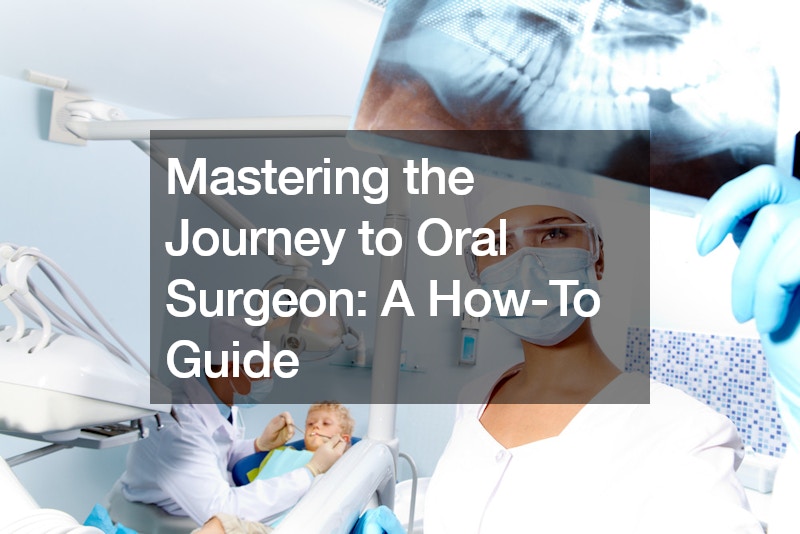
So, you aspire to become one of the esteemed oral surgeons in the medical field. You envision yourself navigating complex procedures, improving patients’ lives, and contributing to the advancement of surgical techniques. Let’s embark on this journey together and explore the pathway to becoming an oral surgeon, demystifying the process and offering actionable insights along the way.
Understanding Oral Surgery: Beyond Common Perceptions
Oral surgery, often associated with wisdom teeth extractions and dental implants, encompasses a much broader scope. While these procedures are integral to an oral surgeon’s practice, the field extends to surgical interventions involving the face, jaw, and oral cavity. From administering anesthesia to performing reconstructive surgeries for facial deformities, oral surgeons are adept at managing a diverse range of conditions. For example, they may collaborate with plastic surgeons and head and neck ENT specialists to address oral cancers or undertake corrective jaw surgeries to treat malocclusions and TMJ disorders.
Actionable Item: Explore shadowing opportunities or internships at oral surgery clinics or hospitals to gain firsthand experience in the field. Alternatively, seek out online resources and webinars offered by professional associations to deepen your understanding of oral surgery beyond conventional wisdom.
Pathways to Becoming an Oral Surgeon
The journey to becoming an oral surgeon begins with a foundation in dentistry. After completing dental school, aspiring oral surgeons have two pathways to pursue: the four-year oral surgery program or the six-year dual-degree program, which confers both a DDS/DMD and an MD degree. While both pathways lead to certification as an oral surgeon, the six-year program offers additional medical training and exposure to surgical rotations.
Actionable Item: Research accredited oral surgery programs and evaluate their curriculum, faculty expertise, and clinical exposure. Consider reaching out to current residents or alumni for insights into their experiences and the program’s strengths and weaknesses.
Navigating the Application Process
Admission to oral surgery residency programs is highly competitive and requires a strong academic background, exemplary clinical performance, and competitive exam scores. Applicants must also prepare for specialized exams such as the Comprehensive Basic Science Exam (CBSE), akin to the USMLE Step 1, to demonstrate proficiency in medical sciences.
Actionable Item: Develop a comprehensive study plan for the CBSE exam, leveraging resources such as review books, online courses, and practice exams. Consider seeking guidance from mentors or faculty members who can provide personalized study tips and strategies based on your strengths and areas for improvement.
Specialization and Fellowship Opportunities
Upon completing an oral surgery residency, aspiring oral surgeons have the option to further specialize through fellowship training in areas such as head and neck oncology, facial cosmetics, or cleft and craniomaxillofacial surgery. These fellowships provide additional expertise in specific surgical techniques and patient populations, enhancing career prospects and professional development.
Actionable Item: Explore fellowship programs aligned with your career interests and goals. Attend conferences, workshops, or seminars related to your chosen specialty to network with experts in the field and gain insights into emerging trends and advancements.
Actionable Steps for Success
To maximize your chances of success on the journey to becoming an oral surgeon, consider the following actionable steps:
Excel in Dental School: Maintain a strong academic record and actively seek out opportunities to gain clinical experience in oral surgery-related settings.
Prepare for Residency Applications: Research residency programs thoroughly, tailor your application materials to each program, and obtain strong letters of recommendation from mentors or faculty members.
Master Surgical Skills: Hone your surgical skills through hands-on experience, simulation training, and participation in extracurricular workshops or seminars.
Network and Seek Mentorship: Connect with practicing oral surgeons, attend professional conferences or events, and seek mentorship from experienced professionals in the field.
Stay Informed and Adapt: Keep abreast of advancements in oral surgery techniques, technology, and research, and be willing to adapt to changes and challenges in the field.
Conclusion
Becoming an oral surgeon is a challenging yet rewarding journey that requires dedication, perseverance, and a passion for surgical excellence. By dispelling myths, setting realistic expectations, and taking actionable steps toward your goal, you can master the path to oral surgery and embark on a fulfilling career that positively impacts the lives of your patients.
With determination, hard work, and a commitment to lifelong learning, you can join the ranks of skilled oral surgeons who make a difference in the field of healthcare every day.
.




